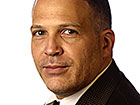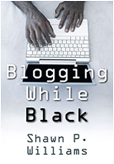Howard Witt Interview – Part 2 of 3
It's ironic that on a night back in September when I originally sent Mr. Witt an e-mail requesting an interview, he replied that he wanted to interview me for a story that he was doing about the Jena rally. It's been an interesting road in the 4 weeks since then that neither of us could have predicted.
I pray that the work that Howard Witt has done this year is recognized. Here's part two of his Dallas South Interview.
Dallas South Blog: Do you see any similarities between the Shaquanda Cotton case and the Mychal Bell/Jena 6 case?
 Howard Witt: Yes, there are many. The similarities start with the way the criminal justice system functions in these small towns, where nearly all of the power (police, prosecutors, judges and school officials) resides in white hands.
Howard Witt: Yes, there are many. The similarities start with the way the criminal justice system functions in these small towns, where nearly all of the power (police, prosecutors, judges and school officials) resides in white hands.
This leads to the perception-based on lots of evidence-that black youths like Shaquanda Cotton or the Jena 6 teenagers are being treated more harshly than their white peers in school and in the courts.
The stories are also similar in their complexity: Often we are talking about kids who do not have unblemished records themselves and therefore might not be the kind of instantly-sympathetic characters that many journalists look for when writing stories about racial issues. These are not simple good-guy/bad-guy stories, but rather much more nuanced tales about the appearance of disproportionate or excessive prosecutions based on race.
In the Jena 6 case for example, I kind of cringe when people oversimplify the story and shout "Free the Jena 6!" It is true, after all, that some black kids (exactly who is in dispute) jumped a white kid at the high school, knocked him unconscious and beat and kicked him while he was lying on the ground. It was not a "schoolyard fight."
But I've always believed that you have to view that incident in the larger context of the racial tensions that had been roiling Jena for months before that, starting with the infamous hanging of the nooses from the tree in the high school courtyard.
What's more, the question has always been about the proportionality of the charges: The Jena 6 teens were initially charged by the local prosecutor with attempted murder, even though the white victim was not seriously injured, while other white youths in the town who had earlier attacked blacks were charged either with misdemeanors or nothing at all.
DSB: When did you realize that there was a movement on the internet being lead by African-American Bloggers?
HW: It was within a few days of the publication of my first Shaquanda Cotton story, back in March. I started noticing a number of blogs concerned with African American issues were re-posting the story and generating lots of heated comments about it, while at the same time I was being flooded with hundreds of emails from readers who had come across the story in various places on the Internet very distant from chicagotribune.com.
The more I looked at these blogs-and your Dallas South Blog featured some of the earliest and most thoughtful commentaries-the more I realized that they were interconnected and, potentially, very influential. In fact I wrote an early story remarking on this phenomenon, which can be found here.
DSB: You wrote a recent article in the Tribune about Black Bloggers. What are your thoughts on what you have seen from these citizen journalists?
HW: Well, I'm really in awe of them, frankly. Many journalists have been inclined to downplay or dismiss bloggers as crazy nerds with too much time on their hands spouting hysterical opinions while sitting bleary-eyed in their underwear in front of their computer screens at 2 a.m. (Okay, maybe some are wearing bathrobes.) 
But this is a nonsensical stereotype, as I've come to realize. While it is true that there's a lot of garbage out there in the blogosphere that's not really worth the time it takes to click on it, there are many more very intelligent and thoughtful bloggers whose commentaries and observations amplify and extend the work that mainstream journalists are doing.
And the black blogosphere in particular looks like it's growing into a very formidable force. As I remarked in my story about black bloggers on the eve of the Jena demonstration, the big-name civil rights leaders like Rev. Jesse Jackson and Rev. Al Sharpton were following the bloggers to Jena, not leading them. Were it not for black blogs and black talk radio, tens of thousands of ordinary black Americans would never have climbed aboard buses for a 20-hour trip to such a remote little Louisiana town.
Ultimately I see a very interesting symbiosis emerging. The world still needs professional journalists to use our investigative and interpretive skills to uncover important stories, which is not something that "citizen journalists" will ever be able to do with any consistency. But telling the story has traditionally been where the role of a journalist stops.
Now bloggers are taking those stories and giving them life, distributing them to a much wider audience that might never read a newspaper and injecting them with political fervor and activism. Which, as we have seen this year in the cases of Shaquanda Cotton and the Jena 6-not to mention Genarlow Wilson and even Don Imus-can have real effects.




